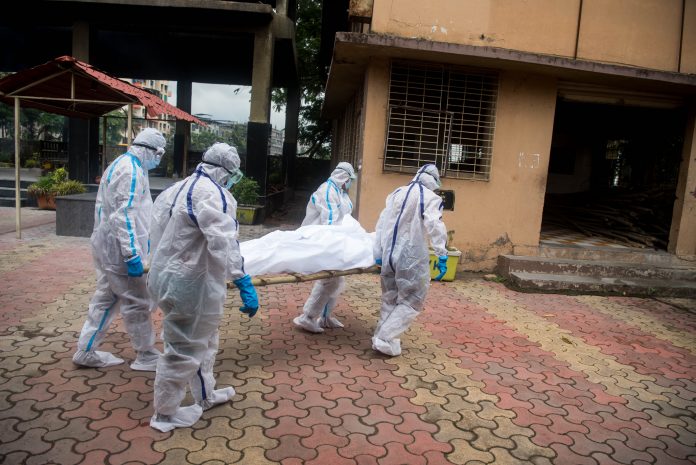The World Health Organisation (WHO) say the pandemic led to 14.9 million global excess deaths, caused either by the virus itself or disrupted access to healthcare
This figure is triple the official global figure connected to COVID deaths – 6.25 million* – which only highlights known losses from the virus itself. In reality, the pandemic struck both directly and indirectly across the globe, sending shockwaves of devastation across communities in every continent.
In a review of data from 2020 to the end of 2021, the WHO worked with Member States to establish the larger picture of loss.
Their analysis finds that the global death toll was higher for men, at 57% to 43%, while the rate of death was higher among older adults. They also reveal that 84% of excess deaths happened in South-East Asia, Europe and the Americas, while just ten countries were responsible for 68% of excess death figures.
What exactly is excess death, also known as excess mortality?
Excess death rates are calculated quite simply – by looking at how many deaths have occurred in a period of time, then comparing it with how many deaths normally happen in a similar period of time. The difference between the two numbers is the figure of excess death, which is incredibly high when it comes to the impact of COVID-19 across the world.
This is a better measurement of how many lives were lost due to the virus, than those who were directly documented as dying from COVID.
Explaining the need for this analysis, the WHO Data, Analytics & Delivery team said: “In general, reported death numbers under-estimate the number of lives lost due to the pandemic, there are several reasons for this.
“They miss those who died without testing, they are contingent on the country correctly defining COVID as the cause-of-death and they miss the increases in other deaths that are related to the pandemic leading to overwhelmed health systems or patients avoiding care.”
COVID-19 overwhelmed global healthcare services, resulting in indirect deaths
Some people lost access to healthcare, as services became overwhelmed with huge numbers of urgent COVID patients. Oxygen was in short supply across the world, with ventilation equipment and PPE also becoming scarce resources.
Essential services like cancer diagnosis, access to reproductive health medicines, and mental health treatment came to a screeching halt, as exhausted healthcare workers fought COVID-19 – often working beyond their mental and physical capacity.
“These sobering data not only point to the impact of the pandemic but also to the need for all countries to invest in more resilient health systems that can sustain essential health services during crises, including stronger health information systems,” said Dr Tedros Adhanom Ghebreyesus, WHO Director-General.
“WHO is committed to working with all countries to strengthen their health information systems to generate better data for better decisions and better outcomes.”
*figures accurate as of 6 May, 2022.











